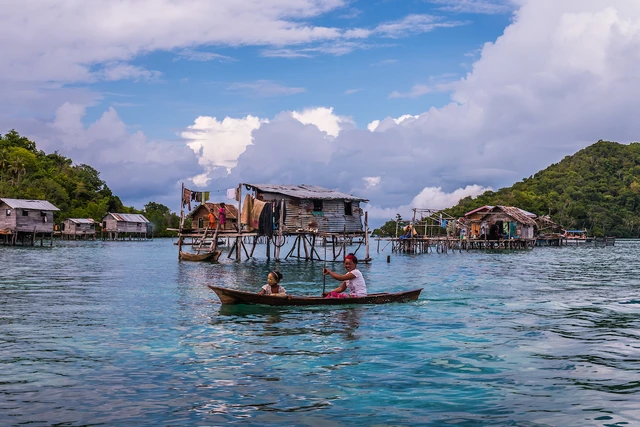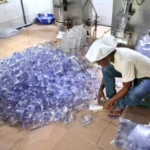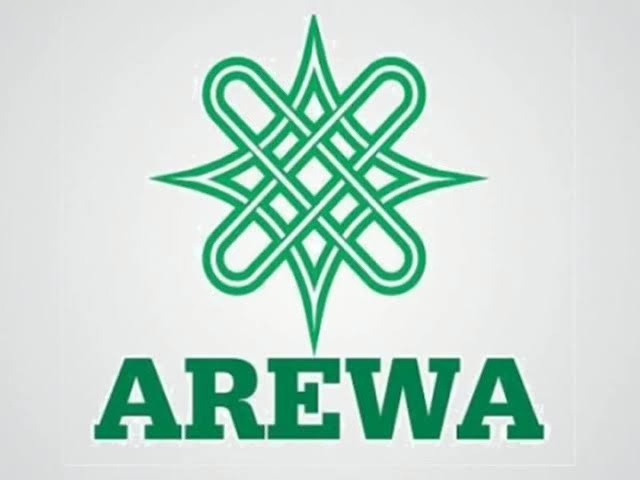For most of us, kicking back in a stilted chalet by the sea makes for picture-perfect holidays. But try living that way every day. For the stateless Bajau, living on the water is just a daily routine.

The Bajau have long been nomadic, sea-faring people, with origins in Southern Philippines. For centuries, they have long lived off the sea, although that number is slowly decreasing. Today, many still live in the middle of the ocean, off the coasts of Indonesia, Malaysia, and the Philippines. Most are not recognised by any state. Having no citizenship and therefore no formal rights to settle on the mainland, they continue to gather in off-shore communities, some in tiny islands, to sustain their maritime hunting skills which have been handed down for generations. Unfortunately, being stateless also means government privileges, like children having access to public schools or adults finding formal jobs, are nonexistent.

Bajau describes all closely related indigenous people who define themselves either as “Land Bajau” (Bajau Kubang or Bajau Darat) or as “Sea Bajau” (Bajau Laut). They have also been called sea gipsies, sea hunters or sea nomads – although the correct term would simply be “natives.” Land Bajau usually live in their marine homes which they’ve crafted all from scratch, and they only engage for bartering purposes with the Sea Bajau who are seafaring the shallow waters with their lepa lepa boats. In contrast to the sparse interior fittings of the stilt houses, the lepa lepa boats allow even less space to shelter necessities such as fishing and cooking gear. Thus, each of the up to 5 family members who crowd a lepa lepa has only one outfit and very few other belongings.

Spontaneously, the families disembark to trade their surplus seafood (mainly fish, lobster, and sea cucumber) to nearby islanders. In return, they will stock up on essential bits and pieces, collect water, or buy cassava to prepare the typical dish called Kasaba Panggykayu. At dusk, everyone returns to the houseboat where communal cooking takes place.
The Bajau have preserved their artisan skills well. A self-taught carpenter quickly designs a fishing boat in about a week without a sketch. “These methods have been passed on from generation to generation, it’s in our genes”, explains Nalu, a local Bajau who came over from the Philippines some 28 years ago. The charming wooden stilt huts which could host a variety of groups, from a family of five to a community with up to 30 roommates, are completed through teamwork within three weeks.

They even produce an everyday sunscreen, Borak Buas based on rice powder which the females use to protect their skin from the beating sun rays. Primarily unmarried women use it a lot, with the hope that their skin stays smooth and therefore attracts a potential spouse.
The Bajau are also known as among the world’s best freedivers, relying on this skill to hunt and feed themselves. They have evolved to have bigger spleens and can stay underwater for up to 13 minutes at depths of 200 feet. This also makes their food unique. While many sea animals would never make it on fine dining tables, the Bajau eat various sea creatures. Sea cucumbers, for instance, are a valuable protein boost for the Bajau, can be used as a medical treatment for diabetes and cancer, and even as an aphrodisiac.

Credit: Vice











Leave a Reply